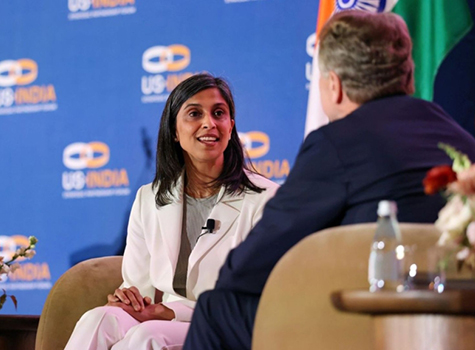
Every year the Academy of Nutrition and Dietetics celebrates the National Nutrition Month with a new theme. This year’s theme — Eat Right, Bite by Bite —supports the philosophy that every little bit (or bite!) of nutrition is a step in the right direction. Small goals/changes can have a cumulative healthful effect.
In honor of the National Nutrition Month, let’s clear up some myths and misconceptions.
What is the difference between a Registered Dietitian and a Nutritionist?
To put it simply, a Registered Dietitian can be a nutritionist, but a nutritionist cannot be a Registered Dietitian. In the US, there is a clear distinction between a dietitian and a nutritionist. A nutritionist is a very loosely used term. Anybody can call themselves a nutritionist or a nutrition consultant. Many gyms, health facilities, and weight loss centers claim to have one on staff.
Registered Dietitian (RD) or Registered Dietitian Nutritionist (RDN) degree has stricter criteria.
RDNs have:
• At least a Bachelor’s degree; most often a Masters in Nutrition/Dietetics
• Completed a year-long supervised internship with minimum 1200 hours
• Passed a national registration exam conducted by the Commission on Dietetic Registration, which is the accrediting agency for The Academy of Nutrition and Dietetics
• To keep the registration current with ongoing education. The state license gets renewed every year, whereas RD credentials get renewed every 5 years.
In addition to the RDN title, the Academy of Nutrition and Dietetics also has specialized certifications for Renal Nutrition, Sports Nutrition, Nutrition Support, etc. Plus, most states in the US have licensing rules that regulate the practice of dietetics. It is illegal to practice dietetics without a state license. As this field has so much demand, there are other degrees like CNC -Certified Nutritional Consultant or Certified Nutrition Coach. Not all of these certifications are validated. Be aware that titles like weight-loss coach, life coach, or wellness expert, which have no official meaning.
Why is nutrition/diet advice so confusing?
I have heard this a million times – one day eggs are good, the next day they are bad. One day butter is healthy, and then it’s not. How do we differentiate from what is good or bad, and how do we decide what to eat?
Science, especially nutritional science, is an evolving area based on new research and better understanding of our bodies with improved technology. Nutritional science is not simple, and here are a few reasons why:
• In research, the randomized controlled trial is considered the gold standard for evidence. Researchers will take test subjects and randomly assign them to one of two groups. One group gets a treatment; the other gets a placebo. It is just not practical to run randomized trials on people. It’s not possible to randomly assign diets and expect 100 percent adherence. Plus, it is difficult to separate the effects of diet from other variables such as environment, genetic factors, stress, etc.
• It’s not humane to purposely make people sick by making them deficient in a nutrient or overdosing them.
• Nutrition researchers have to rely on observational studies. These studies run for years and may track diet patterns to see who develops what disease. These can be very valuable, but are not clear cut and as precise as randomized trials. Not every participant is honest or accurate about remembering what they ate.
• The results of a research study depend on who funded the study. For example, a study funded by the dairy industry will say that milk is extremely important. Or a study funded by the egg industry will say that eggs are not bad for your health. Research funded by independent government agencies or foundations tends to be more credible than industry-funded research. Moreover, most funding goes to treatment of disease rather than prevention.
• There are limitations in the methods used. Only 50 percent of calorie numbers on labels and databases have been found to be accurate. Each person’s immune system and digestive system is unique so there are differences in what we eat and what we actually absorb. The calorie counting apps do not take that into account. What you eat may not affect you immediately.
• All studies do not apply to everyone. Sometimes, the study may be accurate, but its reporting is not. Journalists are not trained scientists. So, they may misunderstand study conclusions, over-exaggerate study findings, or may not see how a single study fits into the larger scheme of things.
• Surprisingly majority of the doctors are not trained in nutrition either. In a 2018 survey, 61 percent of internal medicine residents reported having little or no training in nutrition. On average, U.S. medical schools offer only 19 hours of nutrition education across four years of medical school.
The bottom line is to not get confused by every study that comes out. Do not rely on books or websites to get your nutrition advice. Don’t fall prey to quick weight loss gimmicks or cleanses or products that sound too good to be true. Always seek professional guidance from well-trained Registered Dietitians.
Remember that you are a unique person and your individual medical and family history has to be taken into consideration. When it comes to diet and nutrition, one size does not fit all!
———-
Parul Kharod, MS, RD, LDN is a registered dietitian and licensed nutritionist and works as a Clinical Dietitian with Outpatient Nutrition Services at WakeMed Hospital in Cary and Raleigh. She can be reached at parulkharod@gmail.com
Posted: Friday, February 28, 2020



